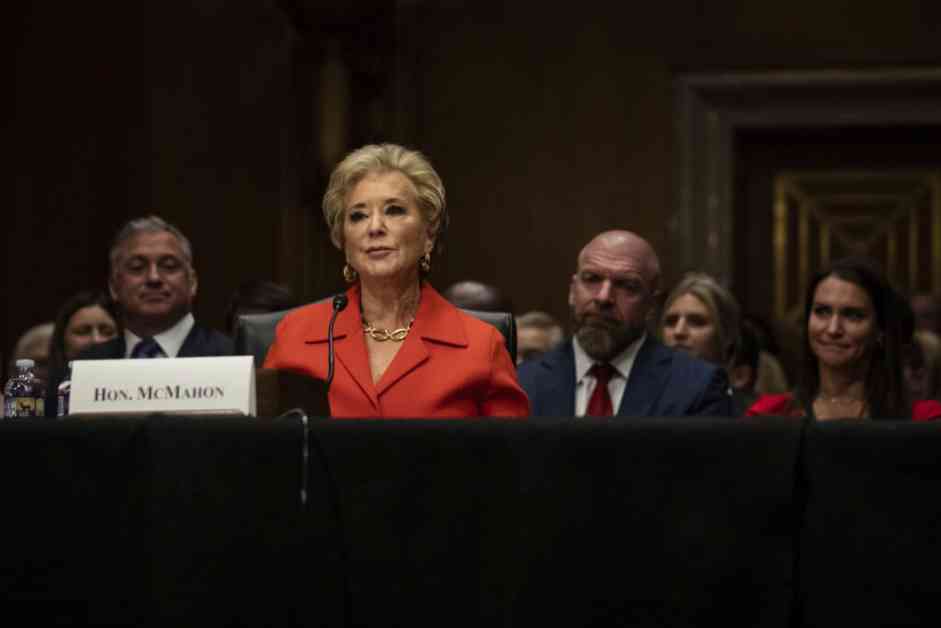Linda McMahon, the nominee for secretary of education under President Donald Trump’s administration, faced a rigorous confirmation hearing in Washington, D.C., surrounded by her family. During this two-hour session, she addressed critical questions from U.S. senators regarding the future of the Department of Education and federal funding for various educational programs.
Commitment to Efficiency
One of the central concerns raised during the hearing was the potential downsizing of the Department of Education. Sen. Bill Cassidy initiated this discussion by inquiring about the impact of downsizing on federal funding allocated to states and localities. McMahon adamantly assured the senators that while the department might undergo changes, the president’s objective does not involve defunding programs but rather enhancing operational efficiency.
President Trump’s long-standing promise to dismantle the Department of Education, labeling it a “con job,” has sparked debates on the future direction of education policy. Despite his campaign rhetoric, Trump acknowledged the legislative authority vested in Congress to determine the fate of the department. McMahon emphasized her commitment to working collaboratively with Congress to adhere to existing laws and regulations.
Embracing Education Reform
McMahon, known for her successful sports entertainment ventures, highlighted her vision for education reform during the hearing. She echoed the president’s sentiments on revamping the nation’s educational system, emphasizing the need to prioritize fundamental skills like reading and mathematics in elementary and junior high schools. Furthermore, she expressed support for educational freedom and the empowerment of teachers over bureaucratic interventions.
Addressing concerns about potential funding cuts for low-income students and those with disabilities, McMahon underscored the importance of federal programs like Title I and IDEA. She indicated a willingness to explore the possibility of relocating IDEA to the Department of Health and Human Services for enhanced service delivery. Despite criticisms from some Democratic senators regarding funding commitments, McMahon remained steadfast in her dedication to ensuring that students receive the necessary support.
In the midst of contentious debates over education policies, the role of federal oversight, and the allocation of block grants to states, McMahon navigated the complex terrain of educational reform with poise. Her responses to inquiries about diversity, equity, and inclusion initiatives underscored the nuanced challenges facing the education sector.
As the confirmation process unfolds, McMahon’s testimony and policy positions are likely to shape the future trajectory of education policy in the United States. With a blend of business acumen and administrative experience, she brings a unique perspective to the realm of education governance. As stakeholders await the outcome of her confirmation vote, the landscape of education reform hangs in the balance.
This is the rewritten article based on the local newspaper content provided.




















